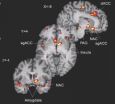(Press-News.org) Starting a milk drinking habit as a child can lead to lifelong benefits, even improving physical ability and balance in older age, according to new research. A new study published in Age & Aging found an increase of about one glass of milk a day as a child was linked to a 5% faster walking time and 25% lesser chance of poor balance in older age. The researchers suggest a "public health benefit of childhood milk intake on physical function in old age" – a finding that has huge potential for adults over 65, a population expected reach more than 70 million by the year 2030, doubling over just 30 years.
The team of British researchers used historical diet records from two large studies to assess the childhood habits of more than 1,500 men ages 62-86. They measured the impact of diet, specifically milk, protein, calcium and fat intake, on current performance and mobility in follow-up. Elderly participants were put through a series of activities, including walking, get-up-and-go, and balance tests. Childhood calcium, protein and milk intake were all associated with advantages in mobility later in life.
The researchers also found that childhood milk drinkers were also likely to be adult milk drinkers, emphasizing the benefits of establishing lifelong healthy habits. Among the many health habits to begin at a young age, experts recognize the importance of beginning the day with breakfast. In fact, studies show that milk drinkers and breakfast eaters have more nutritious diets than non-milk drinkers and breakfast skippers. Milk in the morning is a healthy habit that helps provide kids with nutrients they need for the day and benefits that extend well beyond the morning.
While decades of research support the bone-building benefits of milk, this is the first study to specifically find a physical performance benefit that can last a lifetime. Milk is the top food source of bone-building calcium and vitamin D in the American diet, and each glass provides 8 grams of high-quality protein. The 2010 Dietary Guidelines recommend two glasses of milk for toddlers (ages 2-3), 2.5 cups for children (ages 4-8), and 3 cups for adolescents, teens and adults Milk at breakfast is an ideal opportunity to help your kids start the day right, and get the recommended milk each day.
###
For more information, visit TheBreakfastProject.com
About the National Milk Mustache "got milk?"® Campaign
The Milk Processor Education Program (MilkPEP), Washington, D.C., is funded by the nation's milk processors, who are committed to increasing fluid milk consumption. The MilkPEP Board runs the National Milk Mustache "got milk?"® Campaign, a multi-faceted campaign designed to educate consumers about the health benefits of milk. For more information, go to www.TheBreakfastProject.com or Facebook.com/MilkMustache. Deutsch, A Lowe and Partners Company, is the creative agency for the National Milk Mustache "got milk?®" Campaign.
Source:
Birnie K, Ben-Shlomo Y, Gunnell D, Ebrahim S, Bayer A, Gallacher J, Holly JMP, Martin RMl. Childhood milk consumption is associated with better physical performance in old age. Age & Aging. 2012;41:776-784.
New study finds milk-drinking kids reap physical benefits later in life
Research finds kids who drank more milk have faster walking times and better balance as older adults
2012-11-15
ELSE PRESS RELEASES FROM THIS DATE:
How 'black swans' and 'perfect storms' become lame excuses for bad risk management
2012-11-15
The terms "black swan" and "perfect storm" have become part of public vocabulary for describing disasters ranging from the 2008 meltdown in the financial sector to the terrorist attacks of September 11. But according to Elisabeth Paté-Cornell, a Stanford professor of management science and engineering, people in government and industry are using these terms too liberally in the aftermath of a disaster as an excuse for poor planning.
Her research, published in the November issue of the journal Risk Analysis, suggests that other fields could borrow risk analysis strategies ...
A new way of looking at Prader-Willi Syndrome
2012-11-15
An Australian study reveals that people with the rare genetic disorder known as Prader-Willi Syndrome may have an impaired autonomic nervous system. This discovery opens up a new way of looking at the insatiable appetite experienced by all sufferers, as well as their very high risk of cardiovascular disease.
The autonomic nervous system controls our inner organs, including our gut, heart, liver and blood vessels. It is a finely tuned, dynamic system, responding moment-by-moment to the body's needs.
Researchers from Sydney's Garvan Institute of Medical Research, including ...
Scientists show protein-making machinery can switch gears with a small structural change process, which may have implications for immunity and cancer therapy, compared to the movie The Transformers
2012-11-15
JUPITER, FL, November 15, 2012 – For the past several years, Min Guo, an assistant professor at The Scripps Research Institute, has focused on the intricate actions of an ancient family of catalytic enzymes that play a key role in translation, the process of producing proteins.
These complex enzymes are a group of fundamental molecules that make building blocks for protein production. Present in every cell, these enzymes—known as aminoacyl-transfer RNA synthetases (tRNA synthetases)—select the proper amino acid and assign them to transfer RNAs to make a protein in the ...
Genetics point to serious pregnancy complication
2012-11-15
New research at the University of Adelaide has revealed a genetic link in pregnant mums - and their male partners - to pre-eclampsia, a life-threatening complication during pregnancy.
Pre-eclampsia involves high blood pressure and fluid retention and can cause damage to the kidneys and liver. About 7% of pregnancies are affected by pre-eclampsia.
In a paper now online in the journal Placenta ahead of print publication, the researchers say they have found a genetic variant involving the AGT2R gene, which may predispose women to pre-eclampsia.
However, the genetic variant ...
VTT developes future energy solutions in cooperation with residents
2012-11-15
VTT is developing future energy solutions in cooperation with residents of the new research hotel in Otaniemi. The hotel offers rented furnished accommodation to visiting foreign research scientists, who will move in to the new building in November. The four-storey research hotel is located at Otaranta 4 and overlooks the sea. The hotel has 52 rooms ranging from 30 to 80 square metres, with common areas and facilities on each floor.
Residents' energy behaviour matters – up to a fourfold difference in consumption
Research Professor Miimu Airaksinen says that the role ...
Mercury poisoning ruled out as cause of Tycho Brahe's death
2012-11-15
In 2010, Tycho Brahe was exhumed from his grave in Prague, an event which received extensive international media coverage. Since then, a Danish-Czech team of researchers has been working to elucidate the cause of Tycho Brahe's death. The results of this intensive work now make it possible to rule out mercury poisoning as a cause of death.
For over four hundred years, Tycho Brahe's untimely death has been a mystery. He died on 24 October 1601 only eleven days after the onset of a sudden illness. Over the centuries, a variety of myths and theories about his death have arisen. ...
Study finds asthma is not linked to lower educational attainment
2012-11-15
Research led by Queen Mary, University of London has found that having asthma is not linked to poorer scores in national school examinations. In contrast, ethnicity and social deprivation were associated with poorer educational outcomes in the study, published in the journal PLOS ONE.
Long-term conditions in childhood – of which asthma is now the most common – may have a major impact on educational performance. However, in one of the world's first studies to link health, housing, benefits and educational data in over 12,000 children, researchers from Queen Mary, University ...
Structure of enzyme unravelled providing basis for more accurate design of chemotherapeutic drugs
2012-11-15
Cambridge, MA, November 15, 2012 – A group of researchers at the University of California, Berkeley have for the first time described the structure of the active site core of topoisomerase II alpha, an important target for anti-cancer drugs.
The type II topoisomerases are important enzymes that are involved in maintaining the structure of DNA and chromosome segregation during both replication and transcription of DNA. One of these enzymes, topoisomerase II alpha, is involved in the replication of DNA and cell proliferation, and is highly expressed in rapidly dividing ...
When the going gets tough, the tough get... more relief from a placebo?
2012-11-15
ANN ARBOR, Mich. — Are you good at coping when life gets tough? Do people call you a straight-shooter? Will you help others without expecting anything in return?
Those personality traits might do more than help you win a popularity contest. According to new University of Michigan-led neuroscience research, those qualities also might make you more likely to get pain relief from a placebo – a fake medicine.
And, the researchers show, it's not just your mind telling you the sham drug is working or not. Your brain's own natural painkiller chemicals may actually respond ...
Oxytocin keeps flirting folks at arm's length
2012-11-15
Flirting brings women and men closer. But the "social distance" ensures that they will keep a certain spatial distance from each other. Researchers under the leadership of the University of Bonn studied whether this distance can be diminished by the so-called love hormone, oxytocin. The exact opposite turned out to be true – men who were in a committed relationship even maintained a greater distance from an attractive woman when under the influence of oxytocin than their control group. The study has just been published in the renowned "Journal of Neuroscience."
When people ...
LAST 30 PRESS RELEASES:
ASU researchers to lead AAAS panel on water insecurity in the United States
ASU professor Anne Stone to present at AAAS Conference in Phoenix on ancient origins of modern disease
Proposals for exploring viruses and skin as the next experimental quantum frontiers share US$30,000 science award
ASU researchers showcase scalable tech solutions for older adults living alone with cognitive decline at AAAS 2026
Scientists identify smooth regional trends in fruit fly survival strategies
Antipathy toward snakes? Your parents likely talked you into that at an early age
Sylvester Cancer Tip Sheet for Feb. 2026
Online exposure to medical misinformation concentrated among older adults
Telehealth improves access to genetic services for adult survivors of childhood cancers
Outdated mortality benchmarks risk missing early signs of famine and delay recognizing mass starvation
Newly discovered bacterium converts carbon dioxide into chemicals using electricity
Flipping and reversing mini-proteins could improve disease treatment
Scientists reveal major hidden source of atmospheric nitrogen pollution in fragile lake basin
Biochar emerges as a powerful tool for soil carbon neutrality and climate mitigation
Tiny cell messengers show big promise for safer protein and gene delivery
AMS releases statement regarding the decision to rescind EPA’s 2009 Endangerment Finding
Parents’ alcohol and drug use influences their children’s consumption, research shows
Modular assembly of chiral nitrogen-bridged rings achieved by palladium-catalyzed diastereoselective and enantioselective cascade cyclization reactions
Promoting civic engagement
AMS Science Preview: Hurricane slowdown, school snow days
Deforestation in the Amazon raises the surface temperature by 3 °C during the dry season
Model more accurately maps the impact of frost on corn crops
How did humans develop sharp vision? Lab-grown retinas show likely answer
Sour grapes? Taste, experience of sour foods depends on individual consumer
At AAAS, professor Krystal Tsosie argues the future of science must be Indigenous-led
From the lab to the living room: Decoding Parkinson’s patients movements in the real world
Research advances in porous materials, as highlighted in the 2025 Nobel Prize in Chemistry
Sally C. Morton, executive vice president of ASU Knowledge Enterprise, presents a bold and practical framework for moving research from discovery to real-world impact
Biochemical parameters in patients with diabetic nephropathy versus individuals with diabetes alone, non-diabetic nephropathy, and healthy controls
Muscular strength and mortality in women ages 63 to 99
[Press-News.org] New study finds milk-drinking kids reap physical benefits later in lifeResearch finds kids who drank more milk have faster walking times and better balance as older adults


